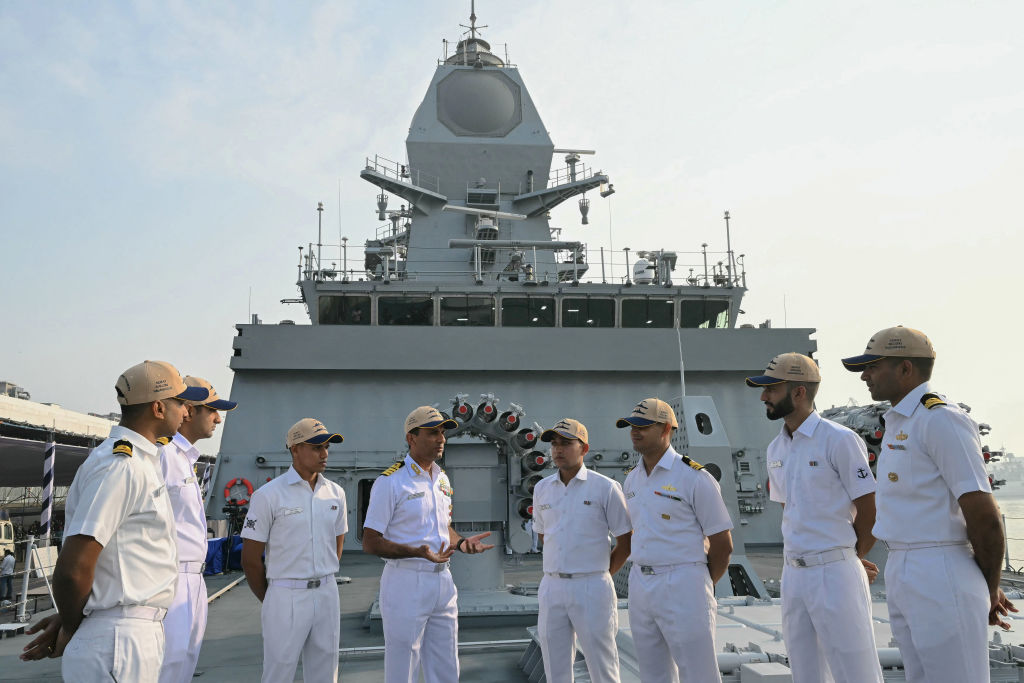As India builds greater ties with Africa, the Indian Navy is playing a significant role in establishing maritime security partnerships. It works to combat Somali piracy, as well as illegal, unreported and unregulated fishing, drug trafficking, and other sea crimes in the western Indian Ocean region, including the Gulf of Aden, Mozambique Channel and the Red Sea.
As part of its “Security and Growth for All in the Region” (SAGAR) policy, India has trained African maritime and military personnel at Indian institutes and enhanced information-sharing to develop maritime domain awareness through regional information fusion centers and maritime coordination centers. These efforts and others “demonstrate India’s commitment to serving as a net-security provider in the Indian Ocean and a preferred partner for African nations seeking to safeguard their maritime interests,” analyst Aritra Banerjee wrote in Eurasia Review.
Last year, the Indian Navy rescued the Malta-flagged commercial ship MV Ruen about three months after it was hijacked by Somali pirates, who were later arrested and brought to India for prosecution.
In Madagascar and the Agaléga islands off Mauritius, India has developed listening stations, which monitor and intercept radio communications, while another one is proposed in Assumption Island off Seychelles, according to Abhishek Mishra of New Delhi’s Manohar Parrikar Institute for Defence Studies and Analyses.
In 2023, India built a major airstrip and jetty on Agaléga’s larger northern island. The airstrip is staffed by Indian Navy officers and guards and can handle Boeing P-8I surveillance and anti-submarine warfare aircraft of the Indian Armed Forces. The Agaléga facilities also enable maritime patrols over the Mozambique Channel, and its staging point will let the Indian Navy observe shipping routes around southern Africa.
“This base on Agaléga will cement India’s presence in the southwest Indian Ocean and facilitate its power projection aspirations in this region,” Samuel Bashfield, a research officer at the Australian National University’s National Security College, wrote for The Lowy Institute.
India also has conducted hydrographic surveys for African countries and developed the Coastal Radar Surveillance network in Mauritius and Seychelles.
“India has recognized the varying priorities of African countries and has fine-tuned its own ways of maritime security cooperation in order to effectively respond to the emerging challenges,” Mishra wrote for the Center for International Maritime Security.
In April, India and 10 African countries completed a first-of-its-kind naval exercise in the Indian Ocean, known as the Africa-India Key Maritime Engagement, or Aikeyme. They conducted the exercise, co-hosted by the Indian Navy and the Tanzania People’s Defense Force, in Dar es Salaam. Comoros, Djibouti, Eritrea, Kenya, Madagascar, Mauritius, Mozambique, Seychelles and South Africa also participated in the exercise, which included harbor and port phases.
The following month, the Indian Navy concluded a monthlong maiden deployment of Indian Ocean Ship SAGAR initiative in the southwest Indian Ocean region. The 44-member crew aboard the Indian Navy ship Sunayna included personnel from Comoros, Kenya, Madagascar, Maldives, Mauritius, Mozambique, Seychelles and Tanzania who jointly manned the ship alongside Indian Navy crew.
India and South Africa in September 2024 agreed to additional naval cooperation that includes submarine rescue. The two countries signed an agreement under which the Indian Navy will deploy one of its two deep submergence rescue vehicles in times of crisis.
New Delhi’s interest in building maritime security capacity in continental waters extends to the Gulf of Guinea, the world’s epicenter of illegal fishing, where piracy and other crimes also flourish. In November 2024, India and Nigeria pledged increased collaboration in counterterrorism, intelligence sharing and maritime security. This aims to help both countries address growing threats in the Indian Ocean and the Gulf of Guinea.
As Mishra noted, India also trains with Mozambique and Tanzania, known as the India-Mozambique-Tanzania Trilateral Maritime Exercise, as well as the India-Brazil-South Africa Maritime Exercise. African countries also regularly participate in the Indian Ocean Naval Symposium’s MILAN exercises.
Additionally, nine African countries — Comoros, Kenya, Madagascar, Mauritius, Mozambique, Seychelles, Somalia, South Africa and Tanzania — are members of the Indian Ocean Rim Association (IORA), which promotes regional integration and economic cooperation among countries bordering the Indian Ocean.
“This is important since the IORA provides another vital platform to highlight Africa’s developmental ambitions and challenges,” Mishra wrote. “With India set to assume the chairmanship of IORA in November 2025, there is now another opportunity for India and African countries to work closely on maritime issues.”

